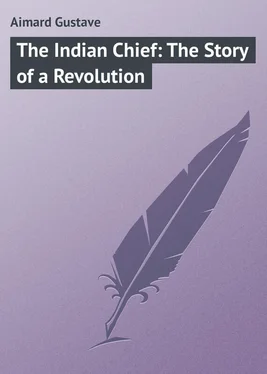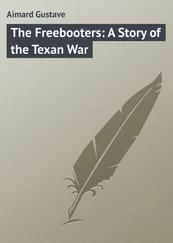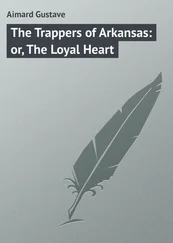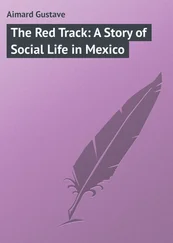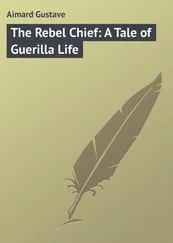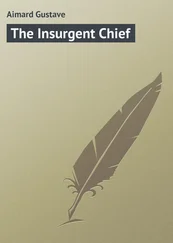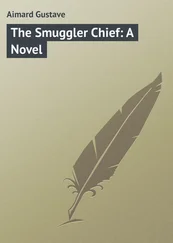Gustave Aimard - The Indian Chief - The Story of a Revolution
Здесь есть возможность читать онлайн «Gustave Aimard - The Indian Chief - The Story of a Revolution» — ознакомительный отрывок электронной книги совершенно бесплатно, а после прочтения отрывка купить полную версию. В некоторых случаях можно слушать аудио, скачать через торрент в формате fb2 и присутствует краткое содержание. Жанр: foreign_prose, foreign_language, на английском языке. Описание произведения, (предисловие) а так же отзывы посетителей доступны на портале библиотеки ЛибКат.
- Название:The Indian Chief: The Story of a Revolution
- Автор:
- Жанр:
- Год:неизвестен
- ISBN:нет данных
- Рейтинг книги:3 / 5. Голосов: 1
-
Избранное:Добавить в избранное
- Отзывы:
-
Ваша оценка:
- 60
- 1
- 2
- 3
- 4
- 5
The Indian Chief: The Story of a Revolution: краткое содержание, описание и аннотация
Предлагаем к чтению аннотацию, описание, краткое содержание или предисловие (зависит от того, что написал сам автор книги «The Indian Chief: The Story of a Revolution»). Если вы не нашли необходимую информацию о книге — напишите в комментариях, мы постараемся отыскать её.
The Indian Chief: The Story of a Revolution — читать онлайн ознакомительный отрывок
Ниже представлен текст книги, разбитый по страницам. Система сохранения места последней прочитанной страницы, позволяет с удобством читать онлайн бесплатно книгу «The Indian Chief: The Story of a Revolution», без необходимости каждый раз заново искать на чём Вы остановились. Поставьте закладку, и сможете в любой момент перейти на страницу, на которой закончили чтение.
Интервал:
Закладка:
"Forward – forward!"
The adventurers responded by a shout of triumph, and rushed once more on the redskins. But the latter no longer awaited their attack. Terrified by the death of Mixcoatzin, one of their most revered sachems, a panic seized upon them, and they fled in every direction. Then began a real manhunt, with all its hideous and atrocious interludes. As we have said, the Indians were surrounded: flight had become impossible. The adventurers, exasperated by the long contest they had been obliged to sustain, pitilessly massacred their conquered enemies, who would have implored mercy in vain. The distracted Indians ran hither and thither, sabred as they passed, transfixed by bayonets, and trampled underfoot by the horses, which, as cruel as their masters, and intoxicated by the sharp odour of blood, stamped on them frenziedly. The corpses were piled up in the centre of the fatal circle which incessantly closed in around them.
Their courage and strength all exhausted, the wretched redskins had thrown away their arms, and, with their hands crossed on their chests, they gave up any further struggle for life, and awaited death with that gloomy calmness of despair and stoicism which characterises their race.
The count had wished for a long time to arrest this horrible carnage; but, in the intoxication of victory, his orders were not so much disobeyed as unheard. Still the Frenchmen stopped, struck with admiration at the sight of the stoical resignation displayed by their brave enemies, who disdained to ask mercy, and prepared to die worthily, without any weakness or bravado. The Frenchmen hesitated, looked at one another, and then raised their bayonets. The count profited by this truce, and rushed before his men, brandishing in the air his sword, reddened to the hilt.
"Enough, comrades," he shouted, "enough! We are soldiers, not hangmen or butchers. Leave to the Mexicans all cowardly acts, and remain what you have ever been – brave and clement men. Mercy for these poor wretches!"
"Mercy – mercy!" the Frenchmen shouted as they brandished their weapons above their heads.
At this moment the sun rose gloriously in a flood of vapour. It was a scene at once imposing and full of sublime horror which the battlefield offered – still smoking with the last explosions of the firearms, covered with corpses, and in the midst of which thirty disarmed men appeared to bid defiance to a circle of men stained with blood and powder, and whose features were contracted by passion.
The count then returned his sword to its scabbard, and walked slowly toward the Indians, who watched his approach restlessly; for they understood nothing of what had just occurred. The Indians are implacable, and clemency is unknown to them. In the prairies the only law is va victis . The redskins, being pitiless, never implore the mercy of their foes, and endure unmurmuring the harsh law which it may please their conquerors to mete out to them.
The adventurers had piled their arms, and had already forgotten all their rancour: they were laughing and talking gaily together. Valentine and Curumilla had rejoined the count.
"What is your intention?" the hunter asked.
"Have you not guessed it?" Louis replied. "I pardon them."
"All?"
"Of course," he said with surprise.
"Then you will restore them to liberty?"
"Yes."
"Hum!" the hunter said.
"Do you see anything to prevent it?"
"Possibly."
"Explain yourself."
"I see no harm in your forgiving the Indians, for that may produce a good effect among the tribes, especially as the redskins have an excellent memory, and will long remember the severe lesson they received this night."
"Well?"
"But," the hunter went on, "all those men are not Indians."
"What do you mean?"
"That there are disguised Mexicans among them."
"You are certain of that?"
"Yes, the more so because I was warned by the man who commands the horsemen that proved such useful auxiliaries to you."
"But are not those horsemen Apaches?"
"You are mistaken, my dear friend: they are white men, and what is more, cívicos ; that is to say, men paid and enrolled by the hacenderos to chase the Indians. You see how honourably they carry out their duties; but that must not astonish you, for you are sufficiently well acquainted with the manners of this country to find that perfectly natural, I have no doubt."
Louis stopped thoughtfully.
"What you tell me confounds me," he muttered.
"Why so?" the hunter replied carelessly. "It is, on the contrary, most simple. But we have not to trouble ourselves about the horsemen at present – they are beside the question."
"Certainly. Indeed, I owe them my thanks."
"They will save you the trouble, and I too. Let us only deal with the men down there."
"Then you are sure there are white men among them?"
"Quite sure."
"But how to recognise them?"
"Curumilla will undertake that."
"What you tell me is strange. For what purpose are these men leagued with our enemies?"
"We shall soon know that."
They then went on, and stood by the group. Valentine made a sign to Curumilla: the chief then approached the Indians, and began examining them attentively in turn, the count and Valentine watching him with considerable interest. The Araucano was as cold and gloomy as usual – not a muscle of his face quivered. On seeing him examine them thus, the Indians could not refrain from shuddering: they trembled at the sight of this dumb and unarmed man, whose piercing glance seemed to try and read their hearts; Curumilla laid his finger on an Indian's chest.
"One!" he said, and passed on.
"Come out!" Valentine said to the redskin.
The latter stood apart.
Curumilla pointed out in this way nine in succession, and then rejoined his comrades.
"Is that all?" Valentine asked.
"Yes," he answered.
"Disarm those men, and bind them firmly," the count commanded.
His orders being obeyed, Don Louis then walked up to the Apaches.
"My brothers may take their arms and mount their horses again," he said. "They are valiant warriors. The palefaces have appreciated their courage, and esteem them. My brothers will return to their villages, and tell the old men and sages of their nation that the palefaces who have conquered them are not cruel men, like the ferocious Yoris, and that they desire to bury the hatchet so deeply between themselves and the Apaches, that it may never be found again for ten thousand years."
An Indian advanced from the group, and saluted majestically.
"Strong Heart is a terrible warrior: he is a jaguar during the combat, but he becomes an antelope after the victory. The words his breast breathes are inspired in him by the Great Spirit – the Wacondah loves him. My nation was deceived by the Yoris. Strong Heart is generous – he has pardoned. Henceforth there will be friendship between the Apaches and the warriors of Strong Heart."
The redskins, according to their custom, had, with that poesy which distinguishes them, given Don Louis the name of Strong Heart.
After this address on the part of the Indian, who was a celebrated chief, and known as the White Buffalo, there was an interchange of good offices between the adventurers and Apaches. Their horses and arms were returned to them, and the ranks were opened to let them pass. When they had disappeared in the forest, El Buitre ordered his men to wheel, and retired in his turn. Don Louis for a moment had the idea of recalling this auxiliary, who had been so useful to him during the action; but Valentine opposed it.
"Let those men go, brother," he said to him. "You must not have any public relations with them."
Don Louis did not insist.
"Now," Valentine went on, "let us finish what we have so well begun."
Читать дальшеИнтервал:
Закладка:
Похожие книги на «The Indian Chief: The Story of a Revolution»
Представляем Вашему вниманию похожие книги на «The Indian Chief: The Story of a Revolution» списком для выбора. Мы отобрали схожую по названию и смыслу литературу в надежде предоставить читателям больше вариантов отыскать новые, интересные, ещё непрочитанные произведения.
Обсуждение, отзывы о книге «The Indian Chief: The Story of a Revolution» и просто собственные мнения читателей. Оставьте ваши комментарии, напишите, что Вы думаете о произведении, его смысле или главных героях. Укажите что конкретно понравилось, а что нет, и почему Вы так считаете.
